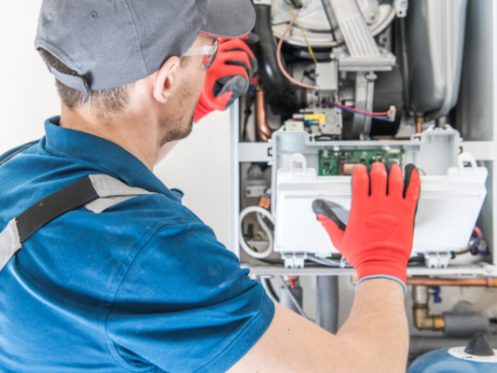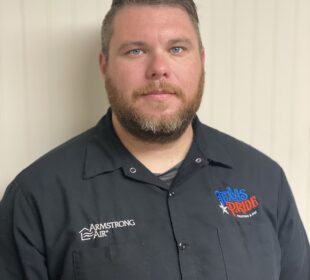If you have an older gas furnace in your home, then chances are that furnace is operated by a standing pilot flame. This flame is designed to stay lit at all times so that it can start your heating system. It essentially serves as an ignition flame for your gas burner.
Simply put, your furnace pilot light needs to be on for your furnace to work. If the light is out, you won’t get any heat. When your furnace pilot light goes out, it can be very frustrating, but it does happen from time to time. But why?
Here are a few of the most common reasons your furnace pilot light may go out.
- The Condition and Age of the Heating System
- Gas Supply Issues
For your pilot light to stay on, you need to have a reliable source of propane or gas going to that flame. If you have an issue with your gas supply or the gas valve, it will cause your flame to go out. This can mean that your gas supply has run out or low, or simply that the valve needs cleaning. - Your Heat Exchanger May Be Cracked
When older heating systems have a pilot light go out, many times, it is because you have a cracked heat exchanger on your hands. This will impact the air pressure in the furnace system which can ultimately put out the flame. - An Issue with the Thermocouple
The thermocouple is a safety mechanism that will determine whether or not your furnace pilot light is lit or not. This safety device is located very close to the flame. The pilot light will tell the thermocouple to keep your gas line open. Unfortunately, sometimes this device can malfunction, or get dirty and accidentally shut off your gas supply and cause the pilot light to go out.
When you have a pilot light, it typically means that you have an older system on your hands. Sometimes, when the heating system is that old, different parts can be worn out and dirty and when these parts fail, it can cause your pilot light to go out with it.
You don’t have to worry about these issues if you have a modern furnace. Most furnaces made in the last twenty years or so, use electronic ignition instead of a traditional pilot light, so you don’t have to worry about issues developing with your pilot.
If your AC is this old (over 20 years), then you need to get rid of this device altogether. Older AC units like this can cause carbon monoxide to escape your HVAC unit and blow carbon monoxide through the entire home. When you turn to the experts here at Texas Pride Heating & Air—all of our gas furnace installations come with a carbon monoxide alarm that will alert you of leaks such as this and help keep you and your family safe.
If you have questions about your HVAC system, or questions about whether or not you need a replacement or a repair, our experts are here to help.








